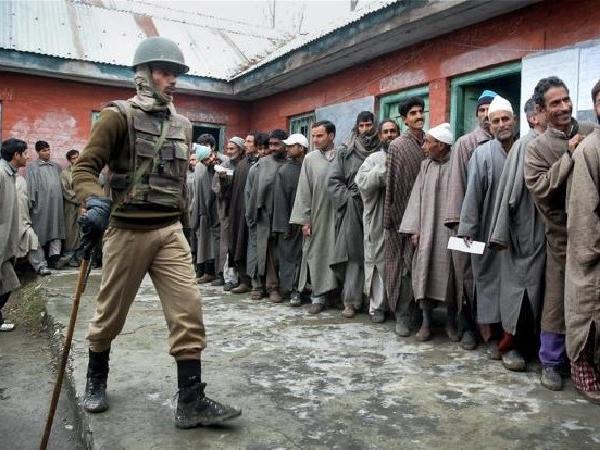India’s Single-Issue Election? An International-Security Perspective By Matthew J. Nelson
Matthew Nelson is a Reader in Politics at SOAS. His research focuses on the comparative and international politics of South Asia, with an emphasis on non-elite politics, comparative political thought, the politics of Islamic institutions, and democracy.
Leading up to U.S. presidential elections, international observers tend to watch the polls. Of course, their attention is misplaced. They should focus on the finer details of America’s Electoral College—the body that actually ‘elects’ the president. In India, too, our attention is often misplaced. We use national narratives (secularism vs. Hindutva, Gandhi vs. Modi) to understand a story that largely unfolds state-by-state. State-level politics are, in effect, India’s Electoral College—they define the patterns that actually determine the outcome.
But I want to zoom out a bit. I’m watching India’s elections from an international and, more specifically, an international-security perspective. Still, given my appreciation for state-level politics, I’m trying to watch these elections focusing on just one Indian state: Kashmir.
It is difficult for international observers to wrap their heads around the details of state-level politics in India. But there is one state with enormous national and international significance that, I believe, international observers would do well to follow: Kashmir. In fact, within Kashmir and with specific reference to this year’s elections, there is one issue that could affect the course of India’s national, regional, and ultimately international affairs. That issue draws a bright red line between Gandhi’s Congress and Modi’s BJP, namely, Rahul Gandhi’s pledge to review India’s Armed Forces Special Powers Acts (AFSPA).
Since 1990, AFSPA has provided an extraordinary measure of impunity to Indian soldiers who commit human-rights abuses in Kashmir. I dare say, within Kashmir, its role in contemporary politics contributes directly to a sense of resentment against the Indian state. Whereas Gandhi’s manifesto promises to ‘remove (Armed Forces) immunity for forced disappearance, sexual violence, and torture’ (Congress Will Deliver, 30-06, page 35), Modi believes that AFSPA should be left entirely unchanged.
Both Gandhi and Modi believe that, as a rising power, India should be granted a permanent seat on the United Nations Security Council. Gandhi’s own party has relied on AFSPA in the past but, building on a 2016 Indian Supreme Court decision criticising the level of impunity extended to India’s Armed Forces in ‘disturbed areas’ like Kashmir, Gandhi understands that AFSPA is a blight on India’s reputation as a truly global power committed to UN values—including (above all) human-rights values. Modi’s BJP, on the other hand, appealing to its Hindu-nationalist base, believes that, with specific reference to Kashmir, Gandhi’s AFSPA pledge aims to appease Muslim ‘traitors and separatists’.
Internationally, I think, Gandhi’s pledge to ‘remove (Armed Forces) immunity for forced disappearance, sexual violence, and torture’ is a no-brainer. In Pakistan, too, the army faces enormous internal pressure to tackle its habit of forced disappearances. So, from a regional perspective, Gandhi’s pledge could help to isolate Pakistan even further. Within Kashmir, moreover, it seems likely that—although the Congress Party manifesto may falter for other reasons—Gandhi’s pledge will be a significant winner. But, on a national level, India’s electoral numbers seem to push the other way. Just two months ago, Modi sought to boost his public-opinion ratings (‘tough on terror’) following Adil Ahmad Dar’s insurgent attack on India’s Armed Forces in Pulwama, south of Srinagar. It worked. There is, in fact, no indication that most Indian voters are inclined to tackle human-rights abuses in Kashmir.
People around the world take an interest in U.S. presidential elections. And they should. But, in the end, global observers do not play a role in American elections. The election of America’s Commander-in-Chief is decided by the Electoral College. From an international-security perspective, I believe that people around the world should take an interest in the politics of Kashmir, the politics of AFSPA, and India’s 2019 elections. Given their starkly different views on AFSPA, Gandhi and Modi offer dramatically different visions of regional and thus international security. But, in the end, international observers must sit back and wait to see what Indian voters decide, knowing that, within India, Kashmir is a bit like Utah: with a population amounting to just 1% of the nation’s total, Kashmir cannot author the country’s international-security narrative. The fate of Kashmir will be decided by India’s other states. Those of us with an interest in regional/international security will simply have to watch and wait.

